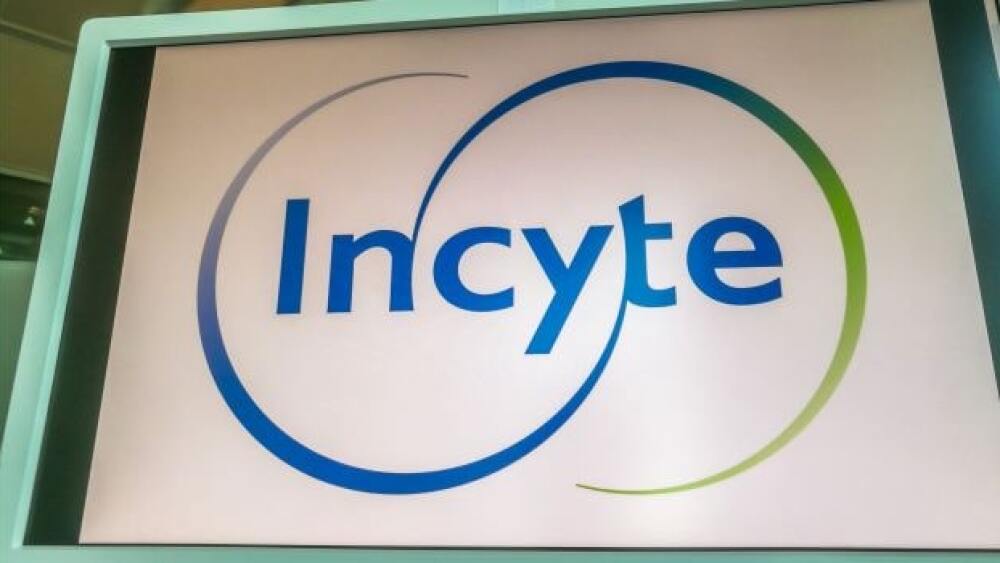Incyte and Novartis announced a Phase III study of Jakafi (ruxolitinib), a first-in-class JAK1/JAK2 inhibitor, failed to hit endpoints as a treatment for patients 12 and up with COVID-19 associated cytokine storm.
Eyesonmilan/Shutterstock
Incyte and Novartis announced a Phase III study of Jakafi (ruxolitinib), a first-in-class JAK1/JAK2 inhibitor, failed to hit endpoints as a treatment for patients 12 and up with COVID-19 associated cytokine storm.
This morning, the two companies said treatment with the JAK inhibitor plus standard-of-care (SoC) in the late-stage RUXCOVID study did not prevent complications in patients with COVID-19 associated cytokine storm. There was no reduction in severe complications, including the need for mechanical ventilation and death. In the trial, the proportion of patients who died, or required mechanical ventilation due to respiratory failure or ICU care by Day 29, was 12% for Jakafi and SoC compared to 11.8% for placebo plus SoC.
Additionally, Novartis and Incyte said Jakafi and standard-of-care treatment failed to show a clinically relevant benefit observed among secondary and exploratory endpoints, including mortality rate by Day 29 and time to recovery.
It was thought that inhibition of JAK 1 and JAK 2 may also play a role in reducing the cytokine storm associated with the most severe complications of COVID-19. Jakafi isn’t the only JAK inhibitor aimed at COVID-19. Earlier this year, Eli Lilly announced a study assessing Olumiant (baricitinib) as a potential treatment for COVID-19 in a Phase III study. Last month, the U.S. Food and Drug Administration granted Emergency Use Authorization to a combination of Olumiant and Gilead Science’s Remdesivir as a treatment for hospitalized patients diagnosed with COVID-19 who require supplemental oxygen or ventilation.
Incyte and Novartis initiated their Jakafi study in the spring, when COVID-19 was running rampant across parts of Europe and Asia, and was also in its early days of outbreak in the United States. The companies said they intend to conduct a comprehensive analysis of the Phase III RUXCOVID study.
Incyte Chief Medical Officer Steven Stein said the results of the RUXCOVID study are disappointing given the urgent concerns of the ongoing pandemic. Stein expressed hope that the findings from the study will be of benefit to the overall scientific understanding of COVID-19 and will ultimately contribute to the development of effective treatments against the ravages of the virus.
According to the Johns Hopkins COVID-19 dashboard, there are more than 72 million cases of COVID-19 across the globe, including 16,257,915 in the United States. The novel coronavirus has been responsible for the global deaths of 1,614,290 people, including 299,191 in the United States.
John Tsai, Novartis’ CMO and Global Head of Drug Development, also expressed his disappointment in the study’s failure.
“We will continue working with the medical community to analyze its findings to better understand COVID-19 and the role of JAK inhibition,” Tsai said in a statement.
Jakafi, known as Jakavi outside the United States, has been approved for the treatment of polycythemia vera (PV) in adults who have had an inadequate response to or are intolerant of hydroxyurea, in adults with intermediate or high-risk myelofibrosis (MF), including primary MF, post-polycythemia vera MF and post-essential thrombocythemia MF and for the treatment of steroid-refractory acute GVHD in adult and pediatric patients 12 years and older.
The RUXCOVID study selected patients based on having pulmonary infiltrates, elevated respiratory rate or hypoxemia.
Featured Jobs on BioSpace





